SUMMARY
This is AI generated summarization, which may have errors. For context, always refer to the full article.
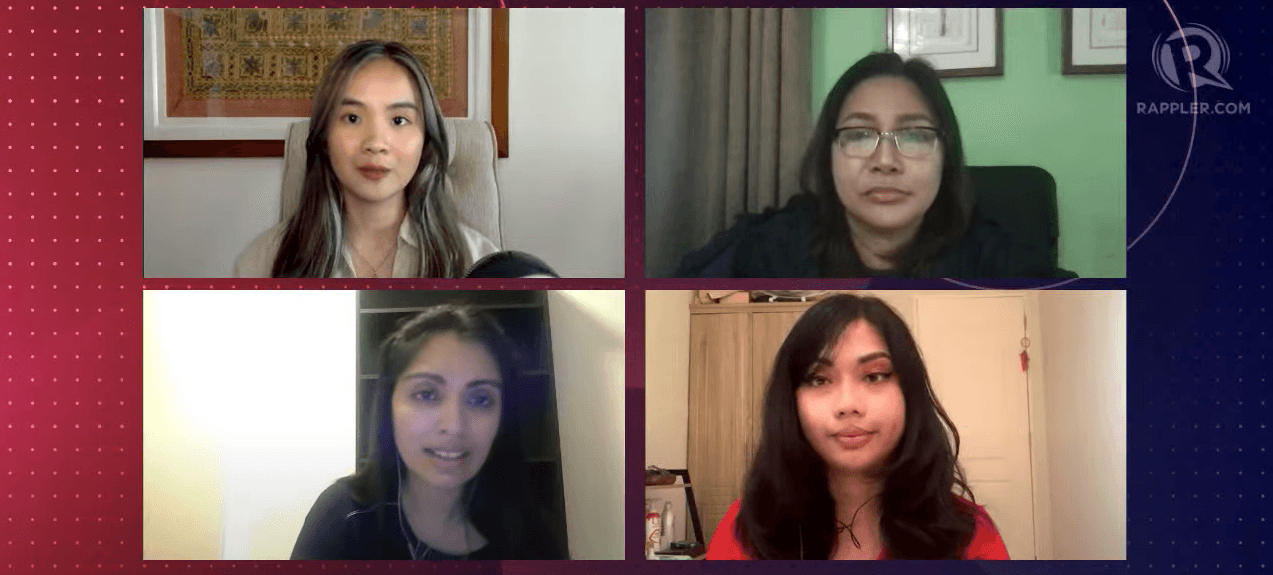
MANILA, Philippines – The gender identities and expressions of candidates in the 2022 elections may be intertwined with how they are perceived by voters, experts and an LGBTQ+ rights organization leader said in a Rappler Talk episode aired Tuesday, March 29.
They also discussed how, in the discourse of women empowerment, voters must not be lost in equating good governance with women leaders either.
“There is a need for us to go beyond simply talking about [gender] identity as the basis for one’s qualification when it comes to holding higher office,” said Bahaghari chairperson Rey Valmores-Salinas.
In an episode of Rappler Talk entitled Women, gender, and the 2022 elections, Rappler researcher-writer Michelle Abad spoke with Salinas, University of the Philippines Diliman political science professor Jean Franco, and London School of Economics and Political Science gender and human rights fellow Sharmila Parmanand on how election discourse is partly shaped by candidates’ gender identities and expressions, which may disrupt considerations of their track records.

The strongman and his son
Despite issues with false educational credentials and tax anomalies, dictator’s son Ferdinand “Bongbong” Marcos Jr. continues to top pre-election surveys for the presidency. In the Rappler Talk, a question was raised on why it was Marcos Jr. and not Senator Imee Marcos, his older sister, who ran for president despite both having political experience. Imee also entered politics before Bongbong.
Franco said that Marcos Jr.’s being male is likely a factor behind the family choosing him to continue their political dynasty at Malacañang.
According to Franco, Marcos Jr. being a namesake of his father also helps with name recall. This helps him in his campaign narrative to “bring back the supposed days of his father’s policies and agenda.”
This can also be associated with what Franco identifies as “authoritarian nostalgia” which, according to Franco, is what Marcos Jr. has been promoting in his campaigns.
“When we think about authoritarianism, we always associate it with a male leader because it is often characterized by strongmen rule, violence, and militarism, which are definitely associated with men in power,” she said.
Voting women for the sake of ‘women empowerment’?
After six years of President Rodrigo Duterte’s strongman rule, it may be tempting for some voters to simply elect more women leaders. But a brief look at Filipino women in politics can show how not all will exhibit good governance and champion gender equality.
Feminists have slammed Senator Pia Cayetano for “enabling” President Rodrigo Duterte’s misogyny. Former president Gloria Macapagal-Arroyo was caught up in alleged plunder and election cheating. Bataan 1st District Representative Geraldine Roman, the first transgender person to be elected to Congress, has backed the restoration of the death penalty and now rallies behind Marcos Jr.’s presidential bid.
This begs the question on whether it is enough to vote for a woman candidate simply because of her gender.
Franco said that there should be more to it than the gender of a candidate. “It is important that we take note of competence, track record, and experience more than the sex or the gender identity of the candidate,” she said.
Franco pointed to an example in Rwanda politics, saying that at one point, the country had more than 50% of women in its parliament, yet it did not result in more laws and policies that advocated for women. “It is not automatic that every woman elected into office would necessarily espouse gender equality measures,” she said.
Salinas added that gender identity should not be the sole basis for supporting a political candidate, and that there are other important factors to consider as well such as track record and platform.
“There are things that are way more weighty when it comes to evaluating a politician or anyone wishing to garner trust and support for public office beyond simply asserting that they’re part of this community,” she said.
The Dutertes’ ‘tokenism’ of gender
Another issue raised during the discussion was how President Duterte and his daughter Davao City Mayor Sara Duterte asserted at some points that they were members of the LGBTQ+ community.
For President Duterte, it was during a speech he gave in Japan in May 2019 when he said “Bakla ako noon (I was gay before)” but that he was “cured.” Sara said that she identifies as a member of the LGBTQ+ community during one of her election rallies for the vice presidency. She said that she wears her hair as short or long based on when she wants to express as a man or a woman.
The Dutertes have been criticized for allegedly using their sexuality as a token for their campaign. Salinas described it as “the weaponization of what we call identity politics in the name of achieving political ends.”
This can be seen in how President Duterte said that he was a member of the LGBTQ+ community, yet invalidated non-heterosexual orientations by saying they can be cured. “It is one thing to be a member of the LGBT community, and it’s another thing to stand up for the rights of the LGBT community,” said Salinas.
Both women, different perceptions
Vice President Leni Robredo and Sara, who are running in the presidential and vice presidential races respectively, are perceived differently despite them both being women.
Pro-administration figures have attacked Robredo for her femininity on top of her opposition to the Duterte administration, while on the other side of the spectrum, Sara is observably not antagonized for her gender.
Parmanand explained that in the case of Robredo, the Vice President presents herself in a stereotypically feminine way. “Filipinos don’t seem ready to accept that women are just as capable leaders, so she’s being conflated with that,” says Parmanand.
President Duterte himself has his share of gendered attacks against his vice president. During one of his weekly televised addresses to the country, Duterte made sexist innuendos against Robredo after she allegedly commented on his absence during the onslaught of Typhoon Ulysses in November 2020. She debunked the allegation.
Robredo was also found to be the biggest victim of disinformation on social media in a study by fact-checking initiative Tsek.PH. A number of lies centered on rumored boyfriends, some allegedly part of the local communist movement, despite the widow saying she has never entered into another relationship after the death of her husband, former interior secretary Jesse Robredo.
At the same time, according to Parmanand, Robredo is also being “systematically targeted under the Duterte administration with all these character assassination attempts.”
For Sara on the other hand, there is a performance of masculinity in how she presents herself.
In July 2011, Sara made headlines after famously punching a court sheriff during a demolition process in Davao City.
This has greatly contributed to Sara’s masculine features that are also apparent “in terms of how she looks, in terms of her disposition, her actions, and in terms of how she speaks,” Parmanand said.
This then becomes an important factor to consider given that people associate one type of female projection to that of a strong and capable leader, while the other is seen as weak and passive.
Despite this, Parmanand remains optimistic that this kind of thinking will not proliferate given the efforts of Robredo and her camp in showing the capabilities of a stereotypical female.
“I think her campaign has made a dent in these norms, in these conceptions of what good leadership looks like,” said Parmanand. – Angel Ty/Rappler.com
Add a comment
How does this make you feel?






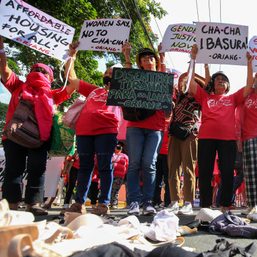
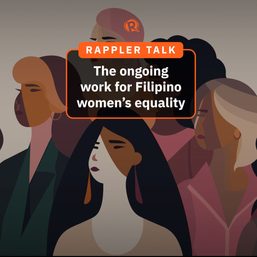

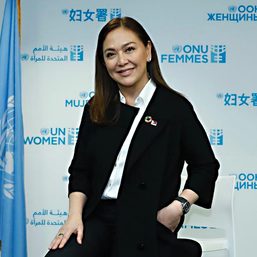


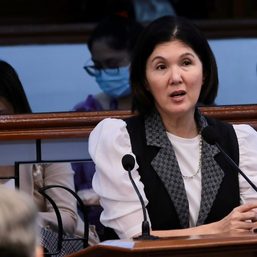
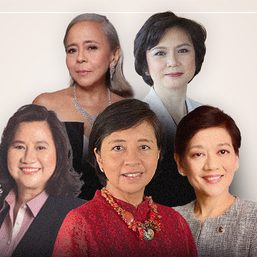

There are no comments yet. Add your comment to start the conversation.